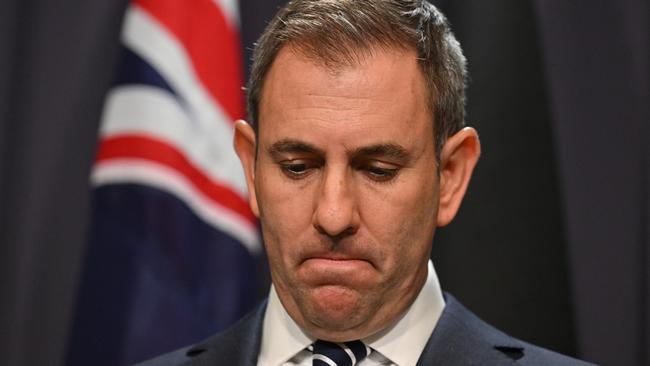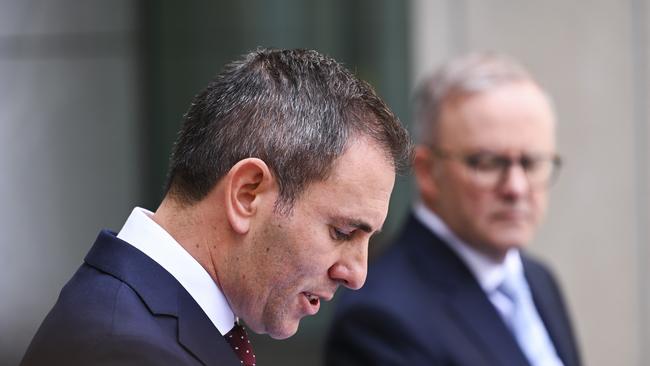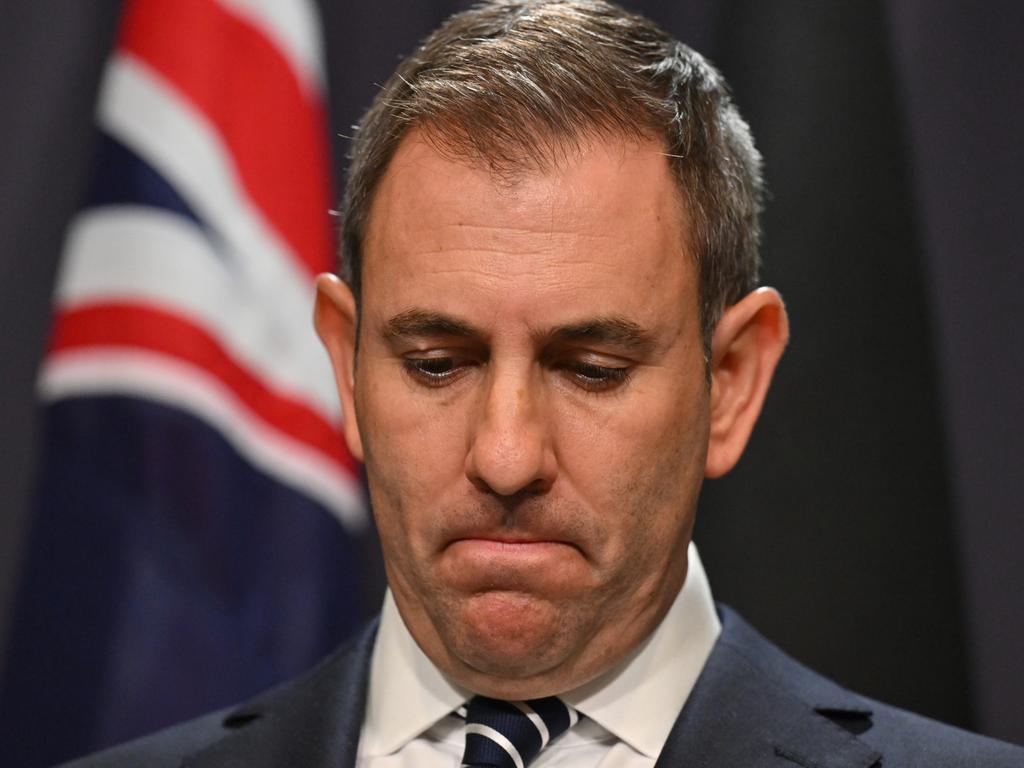Is Chalmers setting us up for bigger changes to come?


Let’s be clear here: this isn’t about budget repair because the sums are far too uncertain and small to make any difference. But it is potentially about softening us up for much bigger changes and not just about superannuation.
In the fortnight, the Treasury released its annual tax expenditure statement (a month late), which set the hares running with two new large items listed – rental deductions (think negative gearing) and work-related expenses. They are estimated to be worth $24bn and $10bn, respectively.
Had the Treasurer had any sense, he would have delayed the release of this make-believe document, because the biggest single item according to the statement is the exemption from capital gains tax of the main residence. The obvious next question: Was Chalmers contemplating imposing a capital gains tax on the sale of the family home? He should have seen that coming.
Last week I pointed out the erroneous approach the Treasury uses to defining tax expenditures and attaching numbers to them. To be clear, tax expenditures are alternatives to specific government spending; they are not about the broad characteristics of the tax and transfer system. The idea first came about in the US where the Republicans were inclined to use tax concessions rather than direct spending to show up the Democrats. Want an arrow factory in Idaho? The Democrats might offer a grant; the Republicans would provide a tax concession to a potential investor.
But our Treasury has ventured so far from that original idea the only way to interpret this year’s tax expenditure statement is as a nonsensical tax grab. Officials then look in every nook and cranny in the economy to establish how to extract more tax revenue.
The way Treasury defines a tax expenditure is any “tax treatment of a class of taxpayer or an activity (that) differs from the standard tax treatment (tax benchmark) that would otherwise apply”. It takes standard features of the tax code such as the deductibility of work-related or investment expenses and classifies them as tax expenditures. This is bizarre.
It goes further by seeking to analyse at length the distributional impact of what it regards as tax expenditures, defining anyone in the top 10 per cent of the income distribution as undeserving of any concessions. This is notwithstanding the fact the top 10 per cent pay the majority of income tax revenue and that the income tax and transfer system is (and should be) the principal driver of redistribution, not these supposed tax concessions.
But it gets worse. Evidently, we are expected to believe the exemption from income tax of the benefits under the National Disability Insurance Scheme is a tax expenditure – and a substantial one at $8bn. Is this a joke? When did anyone suggest NDIS benefits would be taxed? A similar approach applies to childcare assistance. It’s also hard not to be suspicious of the two new big inclusions in the statement: rental deductions and work-related expenses. These were never classified by Treasury as tax expenditures before.

Of course, we have been there before in relation to negative gearing. And obviously those with higher incomes are more likely to invest in rental properties and claim the legitimate deductions. But why is it even listed in the statement? In any case, the government has ruled out changing the negative gearing rules and, with the current state of the rental market and rapidly rising rents, it would be the worst possible time to even think about changing them. Mind you, changes to super had also been ruled out.
As for work-related deductions, this is a very peculiar inclusion. Now some people don’t have to spend a lot of money to earn a living; others have to spend a lot. Tradies and many health professionals spring to mind. It is both fair and efficient to tax incomes after work-related expenses are deducted. But Treasury has a view that too much is claimed by way of work-related deductions and there should be measures to clamp down on the claims. No doubt, this has some superficial appeal for the Treasurer.
Treasury is furiously working on this issue. Chalmers should realise this is potentially political poison if workers whose legitimate spending to earn an income is queried while others are unaffected. Had the Treasurer understood what was going on, he would have vetoed this version of the tax expenditure statement and instructed Treasury to use a much narrower definition of tax expenditures.
Instead, he thought he could use the large (but flawed) estimates of the superannuation tax expenditures to buttress his case for the decision to impose a higher earnings tax on large superannuation balances (in excess of $3m). He saw the overall figure for super tax concessions ($45bn) and probably thought even a small piece of that pie would be worth it.
Treasury has also given Chalmers woeful advice on the mechanics of the higher earnings tax on super. What is proposed is that unearned capital gains on accounts greater than $3m would be taxed in the same way as conventional earnings, something not done anywhere in the world.
As for making those on generous defined benefits pensions suffer the equivalent detriment as large super account holders, good luck with that. The complexities are staggering. Examples include the fact some of the funds pay tax and some do not; some schemes are contributory while others are not, and; many DB beneficiaries have other super funds as well. The only option is to impose individualised tax surcharges on these former high-flyers, but with members of the judiciary exempted (which is hard to tolerate). The cost of compliance is staggering.
In the meantime, it will be good political sport to work out the implied super balances of those Labor politicians on the old parliamentary pension scheme and to ensure they suffer the same way as those who have worked hard in the private sector to create large super balances. You can add in a few former ABC executives, some senior public servants and senior state government officials.
If Chalmers thought he had a challenging two weeks, he may need to take some deep breaths for the weeks and months ahead.






It has been a challenging two weeks for Jim Chalmers. It started with a strange speech the Treasurer gave about the purpose of superannuation including the need for funds to fulfil societal needs. It ended in a confusing mess about his proposal to impose a 30 per cent rate of tax on super balances in excess of $3m.